This code works fine:
#include <stdio.h>
#define N 1000 // <-- Works for values < 2^16
__global__
void add(int *a, int *b) {
int i = blockIdx.x;
if (i<N) {
b[i] = 2*a[i];
}
}
int main() {
int max_value[2];
int ha[N], hb[N];
int *da, *db;
cudaMalloc((void **)&da, N*sizeof(int));
cudaMalloc((void **)&db, N*sizeof(int));
for (int i = 0; i<N; ++i) {
ha[i] = i;
}
cudaMemcpy(da, ha, N*sizeof(int), cudaMemcpyHostToDevice);
add<<<N, 1>>>(da, db);
cudaMemcpy(hb, db, N*sizeof(int), cudaMemcpyDeviceToHost);
max_value[0] = hb[0];
int i;
for (i = 0; i < N; i++) {
if (hb[i] > max_value[0]) {
max_value[0] = hb[i];
max_value[1] = i;
}
}
cudaFree(da);
cudaFree(db);
printf("Max number %d, from value:%d \n", max_value[0], max_value[1]);
getchar();
return 0;
}
But when I change the number N (items in the array) from 1000 to >(216)-1 the program crashes.
I thought it was an overflow on host, so I moved the array declaration of ha and hb to BSS segment and changed N to 1 million.
#include <stdio.h>
#define N 1000000 // <----
__global__
void add(int *a, int *b) {
int i = blockIdx.x;
if (i<N) {
b[i] = 2*a[i];
}
}
static int ha[N]; // <----
static int hb[N]; // <----
int main() {
int max_value[2];
// int ha[N], hb[N];
int *da, *db;
cudaMalloc((void **)&da, N*sizeof(int));
cudaMalloc((void **)&db, N*sizeof(int));
for (int i = 0; i<N; ++i) {
ha[i] = i;
}
cudaMemcpy(da, ha, N*sizeof(int), cudaMemcpyHostToDevice);
add<<<N, 1>>>(da, db);
cudaMemcpy(hb, db, N*sizeof(int), cudaMemcpyDeviceToHost);
max_value[0] = hb[0];
int i;
for (i = 0; i < N; i++) {
if (hb[i] > max_value[0]) {
max_value[0] = hb[i];
max_value[1] = i;
}
}
cudaFree(da);
cudaFree(db);
printf("Max number %d, from value:%d \n", max_value[0], max_value[1]);
getchar();
return 0;
}
Now I don't get an error but the hb array is empty.
Whats wrong with my code?
How can I allocate big arrays to device and get a valid result?
UPDATE: I've inserted the code for error checking,
the error I'm getting is -> "Invalid configuration argument".
The updated code is:
#include <stdio.h>
#include <time.h>
#include <math.h>
#include <thrust/system_error.h>
#include <thrust/system/cuda/error.h>
#include <sstream>
const int N = 70000;
#define checkCudaErrors(error) {\
if (error != cudaSuccess) {\
printf("CUDA Error - %s:%d: '%s'\n",__FILE__,__LINE__,cudaGetErrorString(error));\
exit(1);\
}\
}\
__global__
void add(int *a, int *b) {
int i = blockIdx.x;
if (i<N) {
b[i] = 2*a[i];
}
}
static int ha[N];
static int hb[N];
int main() {
// int ha[N], hb[N];
int max_value[2];
int deviceCount = 0;
cudaGetDeviceCount(&deviceCount);
cudaError_t err=cudaDeviceReset();
if(err!=cudaSuccess){printf("%s in %s at line %d\n",cudaGetErrorString(err),__FILE__,__LINE__);}
printf("Device count: %d \n", deviceCount);
for (int i = 0; i<N; ++i) { ha[i] = i; }
int *da, *db;
checkCudaErrors(cudaMalloc((void **)&da, N*sizeof(int)));
checkCudaErrors(cudaMalloc((void **)&db, N*sizeof(int)));
checkCudaErrors(cudaMemcpy(da, ha, N*sizeof(int), cudaMemcpyHostToDevice));
add<<<N, 1>>>(da, db); // <--- Invalid configuration error
checkCudaErrors(cudaMemcpy(hb, db, N*sizeof(int), cudaMemcpyDeviceToHost));
max_value[0] = hb[0];
int i;
for (i = 0; i < N; i++) {
if (hb[i] > max_value[0]) {
max_value[0] = hb[i];
max_value[1] = i;
}
}
cudaError_t error = cudaGetLastError();
if(error != cudaSuccess) {
printf("CUDA error: %s\n", cudaGetErrorString(error));
getchar();
exit(-1);
}
getchar();
return 0;
}
The device is a GeForce GTX 470 and I'm compiling using
nvcc -o foo new.cu

